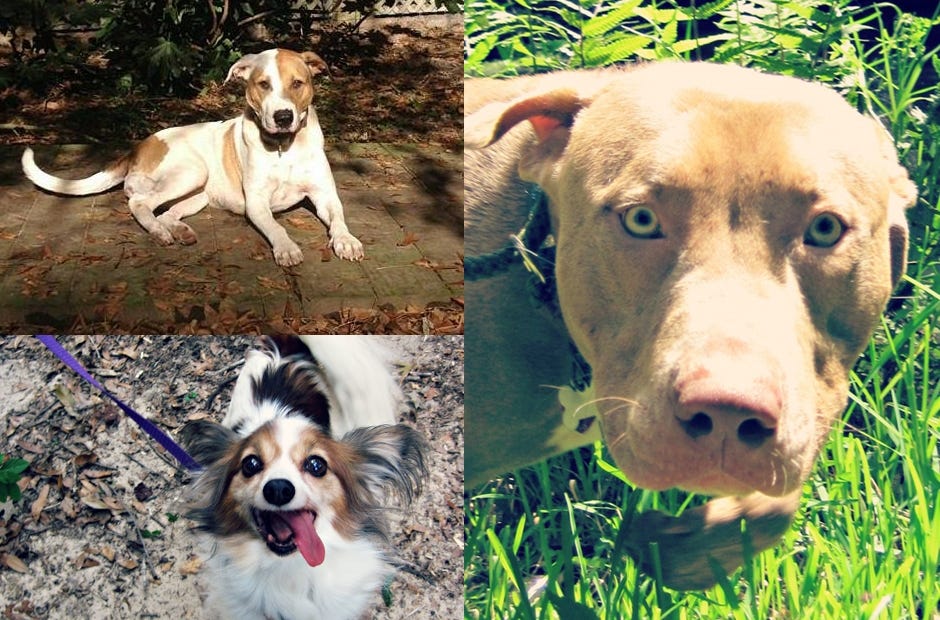
CRESTVIEW — Starting Panhandle Animal Lovers was an easy decision for Crestview resident Hanne Berg.
"My husband (the late Bob Berg) and I started out being failed fosters for dogs,” she said. “We got them to foster and wound up being theirs.”
The story hasn’t changed much since she’s opened PAL, a private no-kill dog shelter.
"That has happened here a lot also,” Berg said. “I keep the ones that are not adoptable too."
Berg shelters and cares for the dogs herself until PAL finds a suitable home for them. The biggest need is shelter, but PAL always seeks donations: food, towels and foster homes.
There are no employees at PAL; "I have a couple of friends that help and that's it,” Berg said. “They basically help with the emailing and that kind of stuff, and fostering also. We're always looking for foster homes. When you have foster homes you can save more animals.”
THE IMPORTANCE OF FOSTERING
According to the PAL website, http://awos.petfinder.com/shelters/FL638.html, early canine training from foster parents socializes dogs and makes them easier to place in permanent homes.
Berg said she appreciates a dedicated group of friends who help with fostering.
One such friend, Christy Barrentine, has duties that range from taking photos and videos of dogs for the PAL website to fostering them.
The Barrentine family originally had two dogs. "(Berg) asked me to foster a dog and we wound up falling in love with that dog and kept it. We wound up fostering eight, but we kept four," Barrentine said.
Janice Speaker's relationship with PAL began similarly.
"I've been with them about nine years,” Speaker said. “It started with a dog that I found in the woods that was really wild and (Berg) helped me find her a home.
"It's a wonderful group. Hanne dedicates her whole life to it and gets dogs adopted. She does find them homes. She is strictly no kill."
INVESTING THE NECESSARY TIME
Fostering a dog is just like any relationship, Barrentine said: "You have to give it time,” she said. “If you already have a dog (and foster one), if the dogs don’t immediately get along, that's to be expected. Give them time to work out their issues."
It also takes time for dogs to "get their bearings" in a house new to them.
"If they have an accident in the house, don't jump to conclusions that they're a bad dog,” Barrentine said. “Just be patient."
That patience has its rewards.
"My life's not boring, thanks to them. They keep me on my toes and we have a good time in here. And just the amount of love they give back to you," Barrentine said.
"One of ours was abused before we got her and a couple of them were found on the streets half-starved to death and covered in fungus. They're just super grateful and it makes you feel good that it's made a difference in their life."
HOW TO SAVE A LIFE
Jennifer Brown, whose family has fostered PAL dogs and adopted two with lifetime medical issues, said another benefit of adoption from a shelter — whether PAL or another site — is that it saves two lives: that of the animal adopted and the one the adoption makes room for in the shelter.
"I just wish people would realize the good family dogs and cats that are put down because there are not enough homes for them,” Brown said.
People who adopt animals from Berg are charged a small fee to cover associated costs: spaying, neutering, heartworm tests, microchipping and other necessities.
However, "We don't just adopt out to anybody,” Berg said. “You have to fill out an adoption application and we kind of use our gut instinct also." That level of consideration means a happy, permanent home for the dog and the dog owner.
MICROCHIP NOW, SAVE HEARTACHE LATER
Another necessity for pet parents, Berg said, is microchipping and putting an identification tag around the pet's neck.
"They need to microchip their animals. They need to always have a collar on their dogs with an ID tag or a rabies tag," Berg said. "And also, if they have a microchip, it's easier to have the dog (reunited) with their owners. It doesn’t cost many dollars to get an ID tag. There are so many lost dogs around here.”
To view, adopt or see which dogs are available from PAL, go to the PAL website or contact Berg at 683-4104. The shelter is at full capacity and cannot accept dropped off animals.

This article originally appeared on Crestview News Bulletin: 'It's made a difference in their life'
